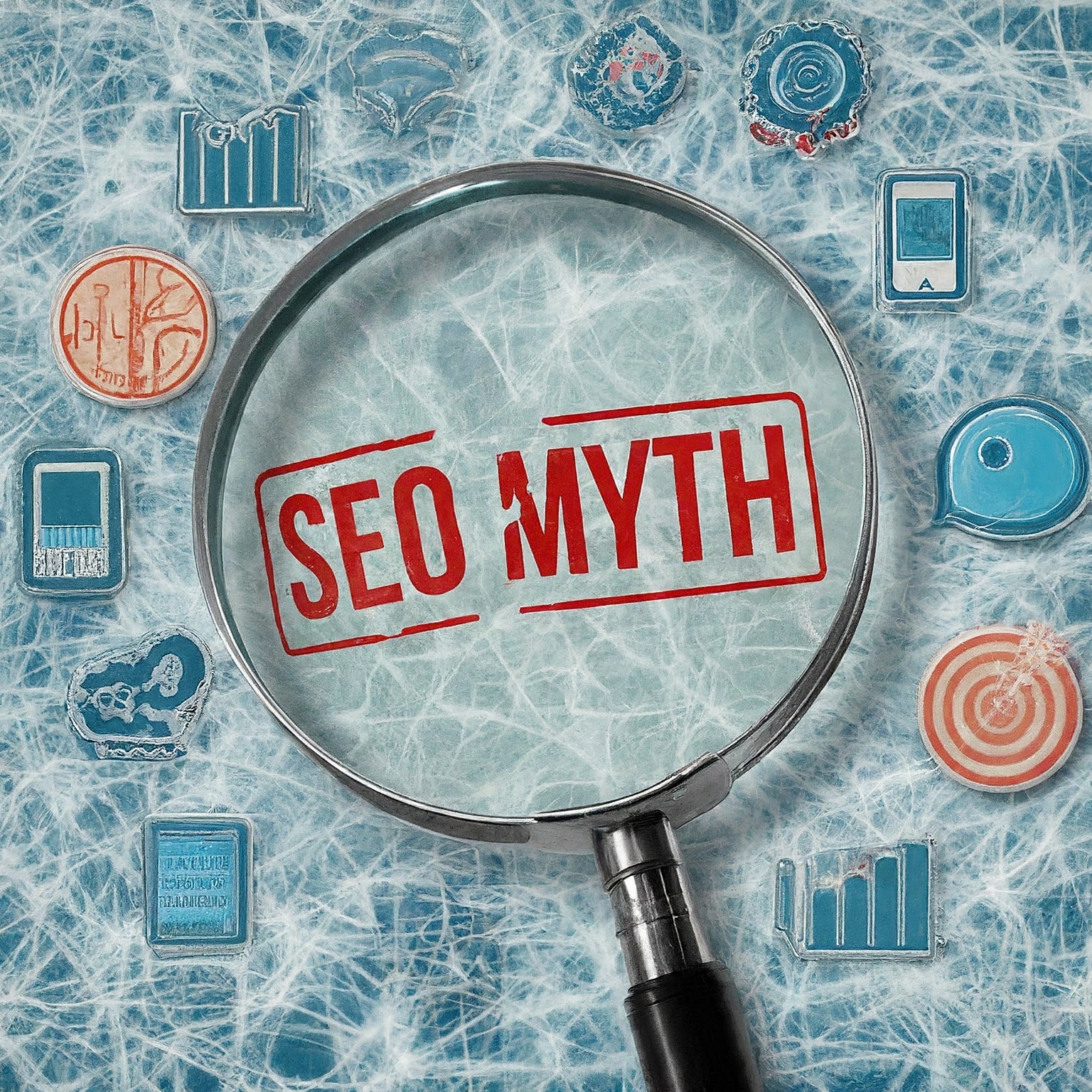SEO (Search Engine Optimization) is an ever-evolving field that drives traffic, boosts visibility, and enhances credibility for websites. Despite its importance, there are numerous myths surrounding SEO that can mislead businesses and marketers alike. In this blog, we'll debunk some of the most common SEO myths and clarify what actually works in today’s digital landscape.
Myth 1: "SEO is Dead"
One of the most persistent rumors in the digital marketing world is that SEO is no longer relevant, often due to the rise of paid ads and changes in algorithms. However, this couldn’t be further from the truth.
Reality: SEO is very much alive! Search engines like Google still rely heavily on organic rankings to provide users with the most relevant information. While the tactics of SEO have evolved over time, the need for optimizing websites for search engines remains crucial. Good SEO practices are now more user-focused, relying on high-quality content, mobile optimization, and seamless user experience.
Myth 2: "Keyword Density is the Most Important Factor"
Many believe that stuffing their content with as many keywords as possible will boost their search rankings. This outdated practice, known as "keyword stuffing," was once a go-to strategy but no longer holds true.
Reality: Quality over quantity is what matters now. Modern search engines prioritize user intent, content relevance, and natural language over strict keyword density. Instead of overloading your content with keywords, focus on creating useful, engaging, and well-structured content that satisfies user needs. Well-placed, natural-sounding keywords will do more for your ranking than keyword-stuffing ever could.
Myth 3: "Backlinks Don't Matter Anymore"
Backlinks (links from other websites to your own) have been a cornerstone of SEO, but some believe their significance has waned in the face of algorithm updates.
Reality: Backlinks still play a huge role in SEO. Google and other search engines view backlinks as a signal of credibility and trustworthiness. The key difference now is that the quality of backlinks matters more than quantity. Links from authoritative, relevant websites can boost your rankings, while spammy or irrelevant links can harm your site’s reputation.
Myth 4: "SEO is a One-Time Thing"
Some think that SEO is a “set it and forget it” task — you optimize once, and you’re good to go.
Reality: SEO requires ongoing effort and maintenance. Search algorithms change regularly, competitors rise and fall, and user behavior evolves. SEO is more of a marathon than a sprint. Regular updates to content, monitoring of performance metrics, technical improvements, and staying abreast of industry changes are essential to maintaining or improving rankings over time.
Myth 5: "Social Media Doesn’t Affect SEO"
There’s a common belief that social media has no direct impact on SEO, leading some to ignore it as part of their SEO strategy.
Reality: While social media shares and likes don’t directly influence search engine rankings, social media can still impact SEO in several indirect ways. High engagement on social platforms can lead to more traffic, brand awareness, and ultimately more backlinks to your website. By sharing high-quality content that resonates with your audience, you can enhance your site’s visibility and search engine performance.
Myth 6: "Mobile Optimization is Optional"
Some website owners still think that mobile optimization is a luxury rather than a necessity.
Reality: Mobile optimization is critical for SEO. With the majority of internet traffic now coming from mobile devices, search engines like Google prioritize mobile-friendly websites. In fact, Google has implemented mobile-first indexing, which means that the mobile version of your site is considered the primary version for ranking. If your site isn't optimized for mobile users, it could significantly impact your search rankings and user experience.
Myth 7: "More Pages Mean Better Rankings"
The idea that having more pages on your site will automatically lead to better rankings is a misconception that has led many to churn out low-quality or duplicate content just to boost page count.
Reality: It's not the number of pages that matters but the quality and relevance of those pages. Search engines favor websites with valuable, informative content that meets user intent. Creating multiple low-quality pages in the hopes of boosting rankings can actually have the opposite effect, causing search engines to view your site as less credible.
Myth 8: "SEO Guarantees Instant Results"
Many people expect to see immediate results after implementing SEO tactics. When results don’t show up overnight, they may assume that SEO doesn't work.
Reality: SEO is a long-term strategy that takes time to yield results. It can take several months to see significant changes in rankings, traffic, and conversions. SEO involves building credibility with search engines over time by consistently delivering quality content, optimizing technical aspects, and earning backlinks. Patience and consistency are key to success.
Myth 9: "Paid Ads Boost Organic SEO Rankings"
There’s a misconception that running paid advertising campaigns, such as Google Ads, will automatically improve your organic rankings.
Reality: Paid ads and organic SEO are separate entities. While paid ads can increase visibility and drive traffic, they don’t have a direct impact on organic search rankings. Both strategies can complement each other in a holistic marketing plan, but spending money on ads won’t automatically result in better SEO performance.
Myth 10: "SEO is Only About Ranking on Google"
While Google dominates the search engine market, some believe that SEO is only relevant for ranking on Google, neglecting other platforms.
Reality: SEO isn't just about Google. Optimizing for other search engines, like Bing or YouTube, and focusing on niche platforms can help you capture a broader audience. Additionally, voice search optimization is becoming increasingly important as more users rely on virtual assistants like Alexa or Siri.
Focus on What Truly Matters
SEO is not dead, and it’s not as simple as keyword stuffing or boosting page numbers. The real key to successful SEO lies in creating high-quality, user-focused content, staying updated on best practices, and maintaining a long-term, strategic approach. Avoid the myths and misinformation, and focus on tactics that are proven to enhance your website’s visibility and search performance.
By staying informed and flexible, your SEO strategy can evolve with the changes in the digital landscape, ensuring sustainable growth and success.

